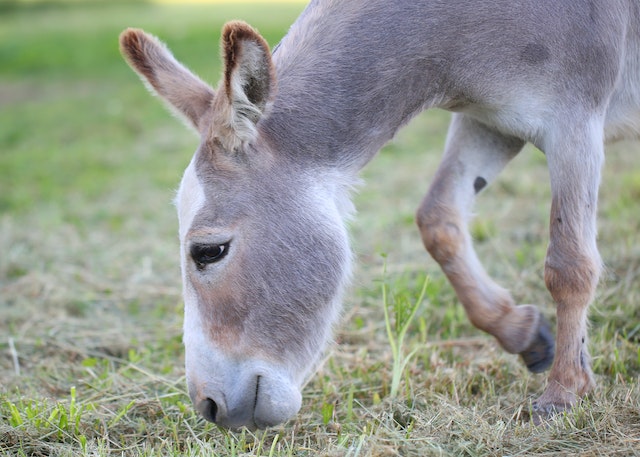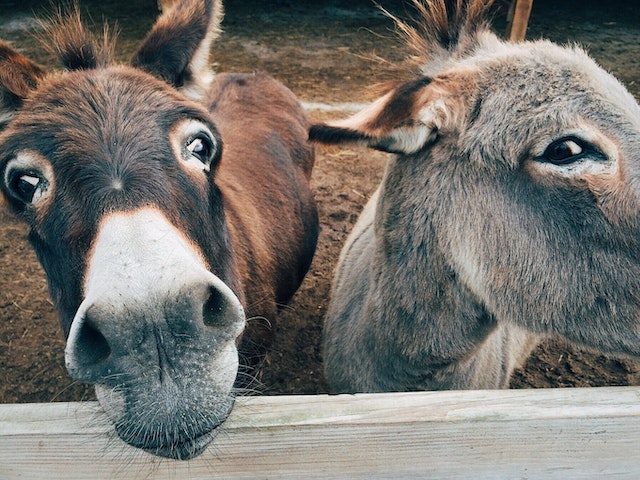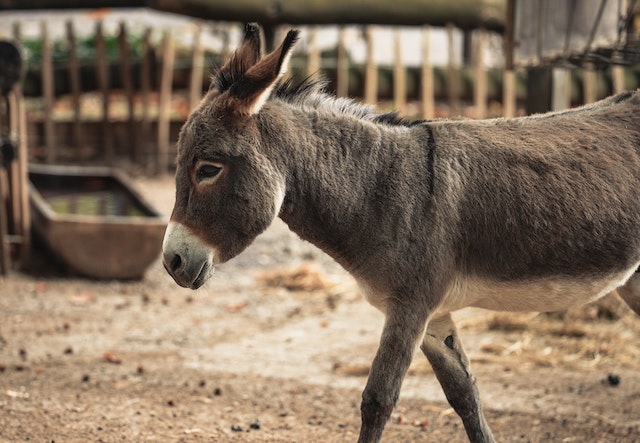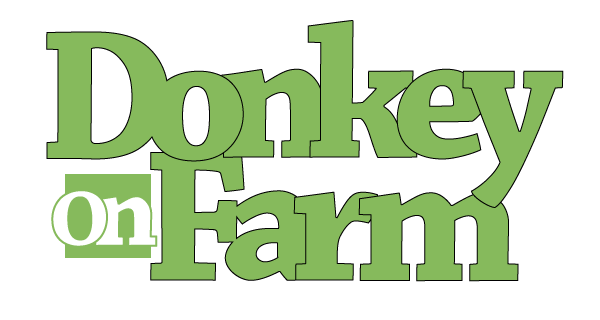Donkeys have remained one of the most reliable and age-old work and burden sharers for mankind. They are sort of an all-terrain animal compared to their close cousin – the horses. While people are fond of acquiring and caring for these jacks and jennies, it is vital to know the key signs of a healthy donkey. Here are seven quick signs to make sure your donkey is in fine fettle.
7 Signs of a healthy donkey
Ensuring that your donkey is healthy requires you to maintain a daily observation and additionally get a regular medical examination done every six to eight weeks. Remember, a donkey is more impassive than a horse, meaning it hides discomfort and pain, which is why you would have to give it a closer watch for any signs or symptoms of poor health.

You could gauge your donkey’s health by examining parameters including physical attributes, movement, and demeanor. The 7 key aspects that you can check to see if you have a healthy donkey are as follows:
1. Built
A fat or lean donkey is not healthy. If your donkey is having the right body built, you won’t be able to see its ribs but yet be able to feel them if you touch over the skin with slight pressure.
2. Body weight
Are you overfeeding or underfeeding your donkey? Keep a regular check on its body weight. Weight loss may imply illness, malnutrition, or even parasites and worms that require immediate medical attention. On the other side, if your donkey is excessively heavy for its age, you are probably over-feeding it and this signals a threat of obesity or resultant health complications in the animal.
3. General behavior
A healthy donkey will usually be alert to the surroundings and show subtle movements of ears when approached by the unfamiliar, even though it may not lift its head while jelled in with the locale. An unhealthy one, on the other hand, would seem uninterested in its surroundings indicating signs of depression. So check for perked-up ears next time you or your guest approaches your jack or jenny.
4. Eyes
A healthy one’s eyes would look clear, bright, shiny, and free of discharge. The pupils would be of the same size and respond to bright light. Watery, sunken, swollen, cloudy, or constantly blinking eyes are indications of illness or infection or even signs of advancing blindness among older donkeys.
5. Ears
A healthy donkey’s ears would remain upright all the time. Got him or her agitated or aggressive? The ears are sure to get laid straight back but they wouldn’t droop or limp unless the animal is undergoing malaise.
6. Skin and coat
A shiny and smooth hair coat is a clear sign of good health. Parasites (internal or external) and malnutrition can get the coat rough. Dehydration may result in dry, stiff, or rough skin. A simple pinch test on its shoulder can help you find this out. As you gently pull the shoulder skin, if it returns to the normal state in less than two seconds, your animal is well hydrated. If it stays tented or takes longer, that’s a sign of dehydration and has to be quickly addressed.
7. Joints, hooves & feet
Even though joint swellings or tenderness prevail among older donkeys, there shouldn’t be any in the normal healthy ones. It is important to check whether the animal is comfortable carrying weight equally across its joints on the shoulders and legs. It is advisable to have a regular examination of the hooves of your donkey as well, in order to ward off any long-term threats such as lameness or infections due to any unattended cracks, debris, swelling, or abscesses.
The hooves should be of reasonable length and based on the terrain of the animal’s habitat, its hooves may require periodic care and trim by a farrier once in six to ten weeks. Any signs of discomfort in the feet or foul sulfurous-smelling hooves would imply a need for immediate medical treatment.

More signs that say whether your donkey is healthy or not
- A discharge-free nose, and a smooth breathing pattern without flared nostrils or noises during inflow and outflow of breath indicate respiratory health in your animal. Otherwise, watch for allergies or upper respiratory diseases.
- A matured healthy donkey breathes 12-20 times per minute and breathing would be noise-free, effortless, and free of rattles, whistles, or squeaks. Also, donkeys seldom cough and if your animal does have dry coughs, do an immediate check-up for any signs of respiratory diseases or pneumonia.
- Oral health is indicated by moist and pink gums and lack of redness, darkness, scabs, sores, or abscesses. Dryness around the gums and lips may be signs of dehydration while paleness of the mucous membrane may imply your animal is possibly anemic. If your animal has got bad breath, do not hesitate to get it checked by a vet.
- Watching its eating habit helps. Usually, donkeys require a lesser amount of feed and protein compared to horses and hence excessive feeding may leave them prone to obesity. If a donkey with a healthy appetite resists food, that might be signs of a fever, dental issues, or abdominal diseases all of which demand immediate attention. Meanwhile, ensure the quality of the feed and water supplied to the animal.

Some alerts for quick action & medical attention for your donkey
- Fever & body sweat
- Lack of appetite
- Drooped head or ears
- Dry rough skin and coat
- Dull or swollen eyes
- Lethargy and frequency of lying down
- Scouring (liquid droppings)
- Constipation (no droppings at all)
- Abnormal color of droppings or presence of blood stains
Things that you can unfailingly meet in order to achieve your donkey’s good health
- Daily health check and grooming for hygiene
- Periodic veterinary care
- Diet including high fiber
- Companionship
- Unhindered access to shelter
- Training and mental stimulus
- Disease prevention measures
- Periodic dental care
- Daily maintenance of stable
Fact check: Donkeys can live for about 40 years, and they are intelligent and stronger than a horse of the same size. They possess an amazing memory power that helps them identify areas and remember the other donkeys they have been with for up to 25 years. Donkeys are highly self-protecting and avoid any decision that poses a threat to themselves, and hence one cannot easily get them startled, unlike horses.
To summarize
Unlike what a vast majority assumes, donkeys are smart than stubborn, have a photographic memory, and bond for a lifetime with their fellow animals or the humans they trust. They are highly social animals and have a strong emotional attachment, which is why they are not to be raised in isolation unless it is medically inevitable for the donkey’s health or in view of contagious diseases.
Even if you are a tenderfoot in adopting and raising a donkey or someone with former experience managing livestock, just prioritize regularly observing the above 7 signs of a healthy donkey. You can definitely pride yourself as its best guardian letting your animal thrive on your farm while monitoring its response to food, water, fellow animals, movements, and postures on a daily basis.

![7 Signs of a Healthy Donkey [Is Your Donkey Healthy?] signs of a healthy donkey](https://donkeyonfarm.com/wp-content/uploads/2022/10/signs-of-a-healthy-donkey-.webp)

![How Cold is Too Cold for a Donkey? [Plus Tips to Keep Them Warm] How-Cold-is-Too-Cold-for-a-Donkey](https://donkeyonfarm.com/wp-content/uploads/2022/09/How-Cold-is-Too-Cold-for-a-Donkey-270x180.jpg)
![How to Get Rid of Flies on Your Donkey? [Plus Prevention Methods] How to Get Rid of Flies on your Donkey](https://donkeyonfarm.com/wp-content/uploads/2022/05/How-to-Get-Rid-of-Flies-on-your-Donkey-270x180.jpg)
![Should Donkeys Be Stabled at Night? [With Alternatives to a Stable] Should-donkeys-be-stabled-at-night](https://donkeyonfarm.com/wp-content/uploads/2023/04/Should-donkeys-be-stabled-at-night-270x180.jpg)
![How Much Can Donkeys Carry? [Avoid Burdening] How-much-can-donkeys-carry](https://donkeyonfarm.com/wp-content/uploads/2022/04/How-much-can-donkeys-carry-270x180.jpg)